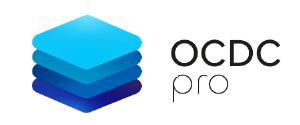
Research Departments
- Agents and Simulated Reality 4
- Augmented Vision 2
- Cognitive Assistants 3
- Cyber-Physical Systems
- Design Research eXplorations 3
- Embedded Intelligence 1
- Intelligent Analytics for Massive Data 1
- Multilinguality and Language Technology 2
- Robotics Innovation Center 4
- Smart Data & Knowledge Services 1
- Speech and Language Technology 1
Research Topics
- Autonomous Systems 9
- Data Management & Analysis 4
- Human-Machine Interaction 13
- IT Security 12
- Image Recognition & Understanding 1
- Language & Text Understanding 2
- Machine Learning & Deep Learning 10
- Other 29
- Robotics 11
- Sensors & Networks 14
Fields of application
- Environment & Energy 4
- Financial Sector 1
- Health & Medicine 21
- Industrie 4.0 9
- Knowledge & Business Intelligence 2
- Learning & Education 5
- Mobility 13
- Other 19
- Smart Home & Assisted Living 17
- Trade & Logistics 8
Displaying results 1 to 10 of 68.
Research Departments
- Agents and Simulated Reality 4
- Augmented Vision 2
- Cognitive Assistants 3
- Cyber-Physical Systems
- Design Research eXplorations 3
- Embedded Intelligence 1
- Intelligent Analytics for Massive Data 1
- Multilinguality and Language Technology 2
- Robotics Innovation Center 4
- Smart Data & Knowledge Services 1
- Speech and Language Technology 1
Research Topics
- Autonomous Systems 9
- Data Management & Analysis 4
- Human-Machine Interaction 13
- IT Security 12
- Image Recognition & Understanding 1
- Language & Text Understanding 2
- Machine Learning & Deep Learning 10
- Other 29
- Robotics 11
- Sensors & Networks 14
Fields of application
- Environment & Energy 4
- Financial Sector 1
- Health & Medicine 21
- Industrie 4.0 9
- Knowledge & Business Intelligence 2
- Learning & Education 5
- Mobility 13
- Other 19
- Smart Home & Assisted Living 17
- Trade & Logistics 8








